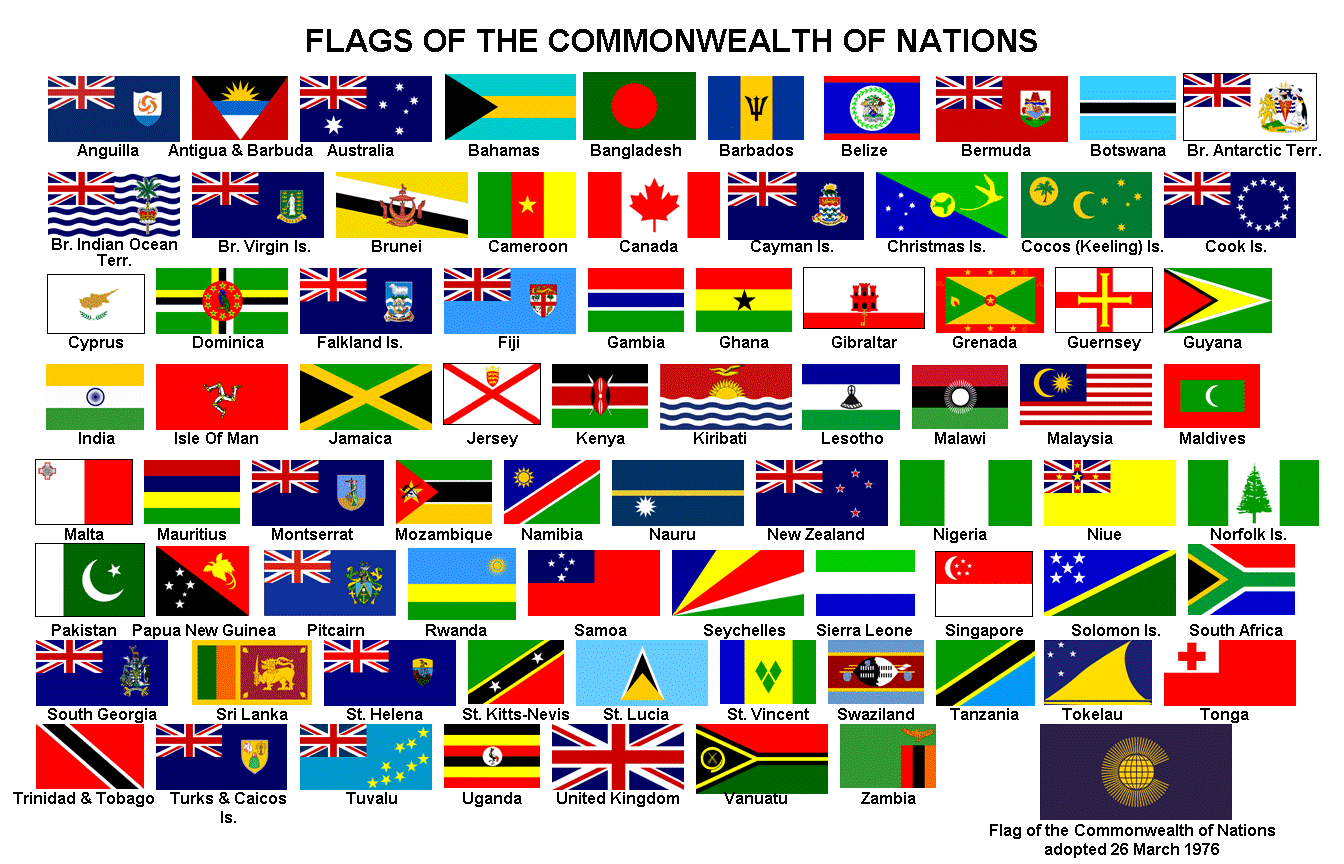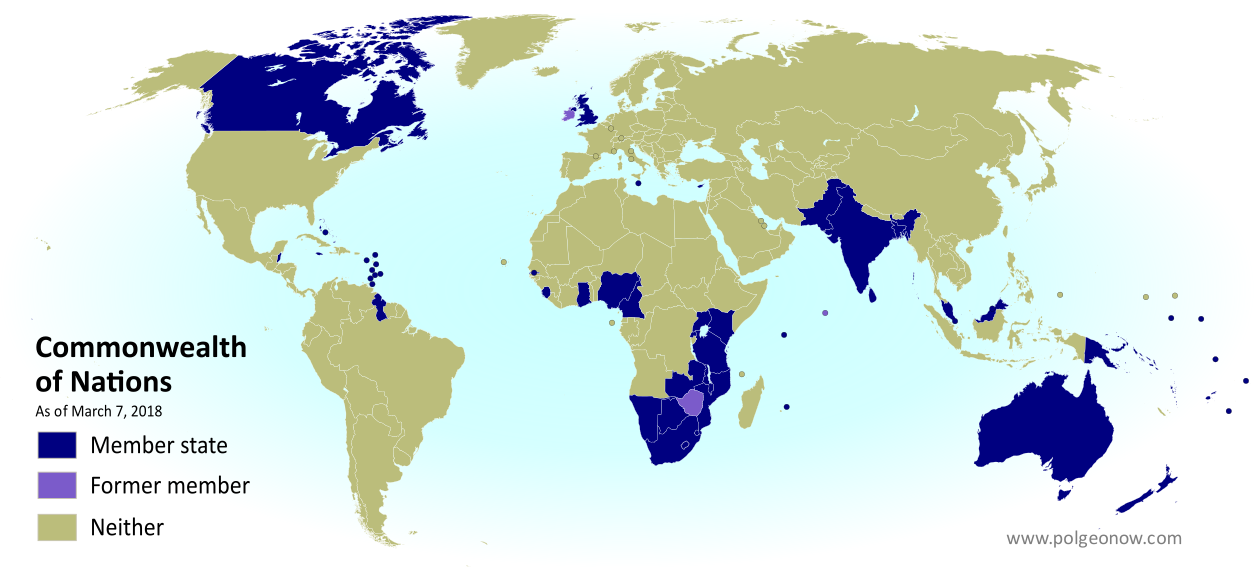Introduction to the Commonwealth
The Commonwealth of Nations, often simply referred to as the Commonwealth, is a political association of 56 member countries, most of which are former territories of the British Empire. Established in the mid-20th century, the Commonwealth seeks to foster international cooperation and trade links between people all around the world. The member countries span across Africa, Asia, the Americas, Europe, and the Pacific, encompassing a diverse array of cultures, languages, and histories. In 2024, the Commonwealth remains an influential entity, promoting peace, democracy, and development across its member states. This article delves into the significance, benefits, and challenges of being part of this unique global community.
Historical Context of the Commonwealth
The Commonwealth's origins can be traced back to the decolonization process that followed World War II. As former colonies gained independence, the need for a new kind of relationship with Britain emerged. The 1949 London Declaration marked the beginning of the modern Commonwealth, emphasizing equality among its members. The Commonwealth was envisioned as a voluntary association with no legal obligations, but a shared commitment to certain values, including democracy, human rights, and economic development. Over the decades, the Commonwealth has evolved, with countries joining and leaving, reflecting the changing political landscapes and aspirations of its members.
The Role of the Commonwealth in Global Affairs
In 2024, the Commonwealth continues to play a significant role in global affairs. It provides a platform for small and large countries alike to voice their concerns and collaborate on issues such as climate change, education, and economic development. The Commonwealth Heads of Government Meetings (CHOGM) are held biennially, bringing together leaders to discuss pressing global challenges and strategize on how to address them. The organization's commitment to consensus-building and diplomacy makes it a unique entity in international relations, often serving as a bridge between different geopolitical blocs.
Economic Opportunities within the Commonwealth
Membership in the Commonwealth offers numerous economic benefits. The shared language and similar legal frameworks among many member countries facilitate trade and investment. The Commonwealth's combined population exceeds 2.5 billion, providing a vast market for goods and services. Initiatives such as the Commonwealth Enterprise and Investment Council work to boost trade and investment links between member states. In 2024, the focus on digital trade and sustainable development is particularly strong, with member countries collaborating on projects to harness technology for economic growth while addressing environmental concerns.
Cultural Exchange and the Commonwealth
The Commonwealth is not just a political and economic entity; it is also a cultural powerhouse. Member countries celebrate their shared history and diverse cultures through various programs and events. The Commonwealth Games, held every four years, is a testament to the organization's commitment to promoting sports and camaraderie among its members. Cultural exchanges and educational programs, such as the Commonwealth Scholarship, provide opportunities for individuals to learn and grow in a multicultural environment. In 2024, cultural diplomacy continues to be a cornerstone of the Commonwealth's efforts to foster understanding and cooperation among its diverse membership.
Challenges Facing the Commonwealth
Despite its many benefits, the Commonwealth faces several challenges in 2024. Political instability, economic disparities, and human rights issues in certain member countries can strain the organization's cohesion. The Commonwealth must navigate complex geopolitical tensions, balancing the interests of its diverse membership. Additionally, the relevance of the Commonwealth is occasionally questioned, especially in an increasingly multipolar world where new alliances are constantly forming. Addressing these challenges requires strong leadership, adaptability, and a commitment to the values that underpin the Commonwealth's existence.
The Commonwealth and Climate Change
One of the most pressing issues for the Commonwealth in 2024 is climate change. Many member countries, particularly small island states, are vulnerable to the impacts of rising sea levels and extreme weather events. The Commonwealth has been proactive in advocating for climate action, emphasizing the need for sustainable development and resilience-building. Initiatives like the Commonwealth Climate Finance Access Hub aim to support member countries in accessing the necessary funds to implement climate adaptation and mitigation projects. The organization plays a crucial role in amplifying the voices of its members on the global stage, particularly in forums such as the United Nations Climate Change Conference.
Education and the Commonwealth
Education is a key focus area for the Commonwealth, with numerous initiatives aimed at improving access to quality education across member states. The Commonwealth of Learning, for instance, works to enhance learning opportunities through the use of technology. In 2024, there is an increasing emphasis on digital literacy and skills development, as member countries seek to prepare their populations for the demands of the modern workforce. Collaborative projects and knowledge-sharing are central to the Commonwealth's educational efforts, fostering innovation and inclusivity in education systems worldwide.
The Future of the Commonwealth
Looking ahead, the Commonwealth is poised to remain a vital force in international relations. Its ability to adapt to changing global dynamics and address the needs of its diverse membership will determine its future relevance. In 2024, there is a renewed focus on strengthening the Commonwealth's institutional frameworks and enhancing its capacity to deliver tangible benefits to its members. As the world grapples with complex challenges such as inequality, technological change, and geopolitical tensions, the Commonwealth's commitment to its core values will be crucial in shaping a more equitable and sustainable future.
Conclusion: The Commonwealth's Enduring Legacy
The Commonwealth's legacy is one of unity in diversity, a testament to the power of collaboration and shared values. As we navigate the complexities of the 21st century, the Commonwealth's role as a champion of democracy, development, and dialogue remains as important as ever. In 2024, the organization continues to evolve, addressing global challenges while celebrating the unique contributions of its member countries. The Commonwealth's enduring appeal lies in its ability to bring together nations from all corners of the globe, fostering a sense of belonging and purpose that transcends borders. As we look to the future, the Commonwealth's commitment to building a better world for all its members will undoubtedly guide its path forward.
You Might Also Like
How Old Is Kevin From Home Alone In 2024?Fanatics: A Comprehensive Guide To Understanding, Engaging, And Enjoying
Exploring The Legacy And Influence Of Dos Santos In 2024
Mastering The Art Of "Lods" In 2024: Tips, Tricks, And Reviews
Unveiling The RWC: Your Ultimate Guide To The 2024 Rugby World Cup
Article Recommendations
- Jonathan Roumies Wife Everything You Need To Know
- Linda Mcmahon Net Worth 2024 A Deep Dive Into Her Wealth And Legacy
- Rhea Ripley Nude


